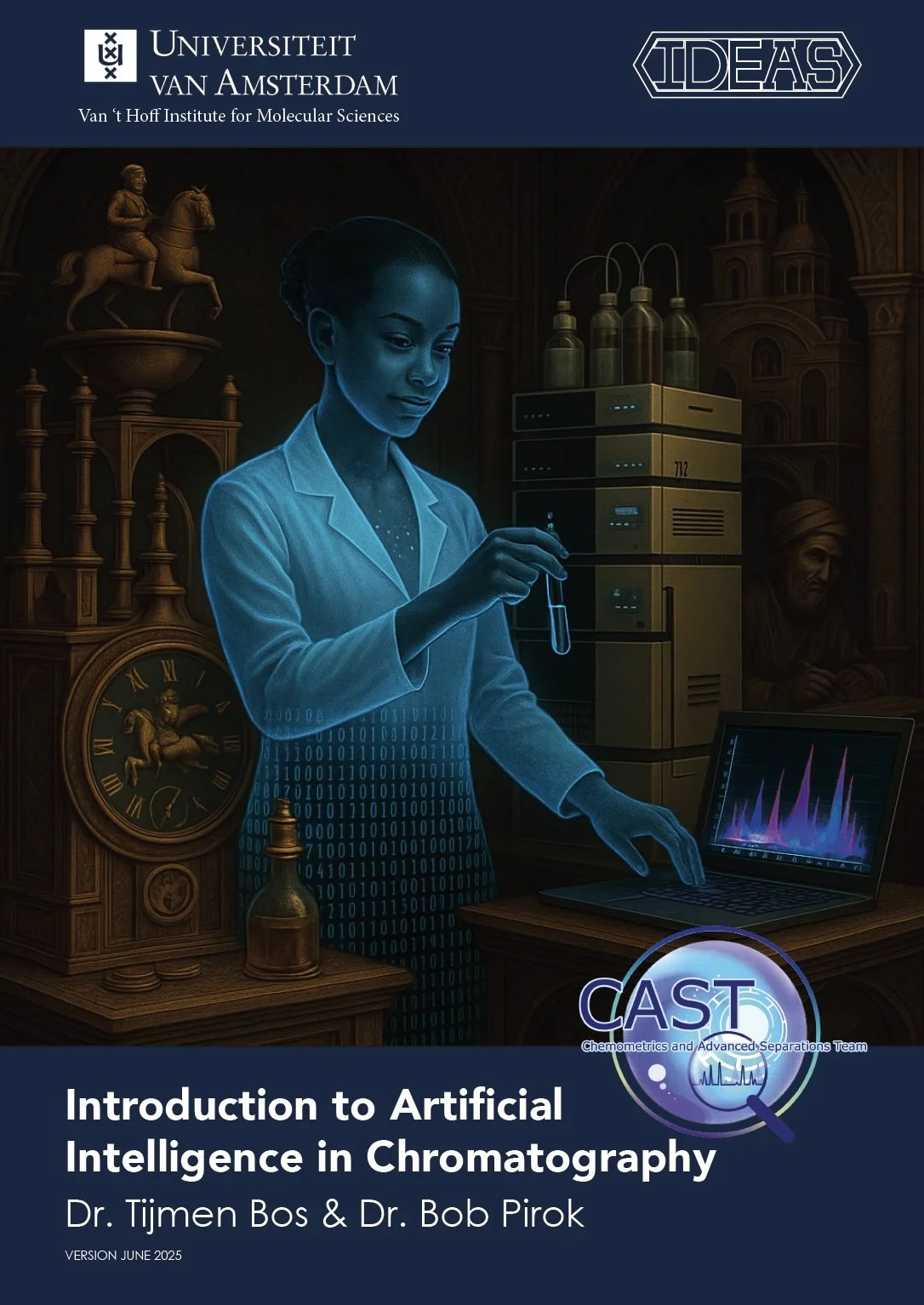Courses
Courses and Training
IDEAS offers advanced, practice-oriented courses designed to support scientists and engineers working in analytical separation science, data analysis, and materials characterization. Our training programs combine rigorous theoretical foundations with real-world applications, enabling participants to deepen their understanding of complex techniques and to apply new concepts directly within their own research or laboratory workflows.
Courses are developed and delivered by experienced researchers with strong academic and industrial backgrounds. All training can be provided as on-site courses, focused workshops, or customized programs tailored to the specific analytical challenges, instrumentation, and data types relevant to your organization. Depending on the topic and audience, courses may range from introductory overviews to in-depth, specialized modules.
Machine Learning in Chromatography
-
Artificial intelligence (AI) is increasingly influencing scientific research, from molecular discovery to advanced data-driven modeling. Analytical separation science is similarly exploring how these methods can support data interpretation and method development. In this context, this course was presented at the 54th International Symposium on High Performance Liquid Phase Separations and Related Techniques (HPLC 2025). It offers an introduction to AI as applied to chromatography and related analytical workflows, with an emphasis on both fundamental principles and realistic, application-oriented perspectives.
-
The course begins with an accessible yet thorough introduction to AI, explaining its scope as a broad field encompassing numerous techniques, similar in diversity to chromatography itself. Participants will explore the most relevant AI methods for analytical chemistry, alongside their historical development and the technological “AI Winters” that slowed progress.
A dedicated module addresses the limitations and challenges of AI, emphasizing the importance of understanding when and why certain techniques may fail, and recognizing situations where these limitations cannot be mitigated.
The course then moves to a critical review of real-world AI applications in chromatography and data analysis, highlighting both successes and failures, and concludes with a forward-looking perspective on likely developments in the coming years. -
Expert Guidance: In-depth explanations of core AI techniques, their potential, and their limitations in practical laboratory contexts.
Practical Exercises: Work with simulated chromatograms generated from randomized retention models or your own experimental data for personalized analysis.
Case Studies: Examples of successful and less successful AI applications in chromatography and analytical data processing.
Hands-On Session: Requires a Windows laptop capable of installing third-party software; performance may depend on computational power.
Interactive Demonstration Tool: A specialized software tool will be provided, enabling participants to simulate and assess the effects of AI on chromatographic optimization processes.
